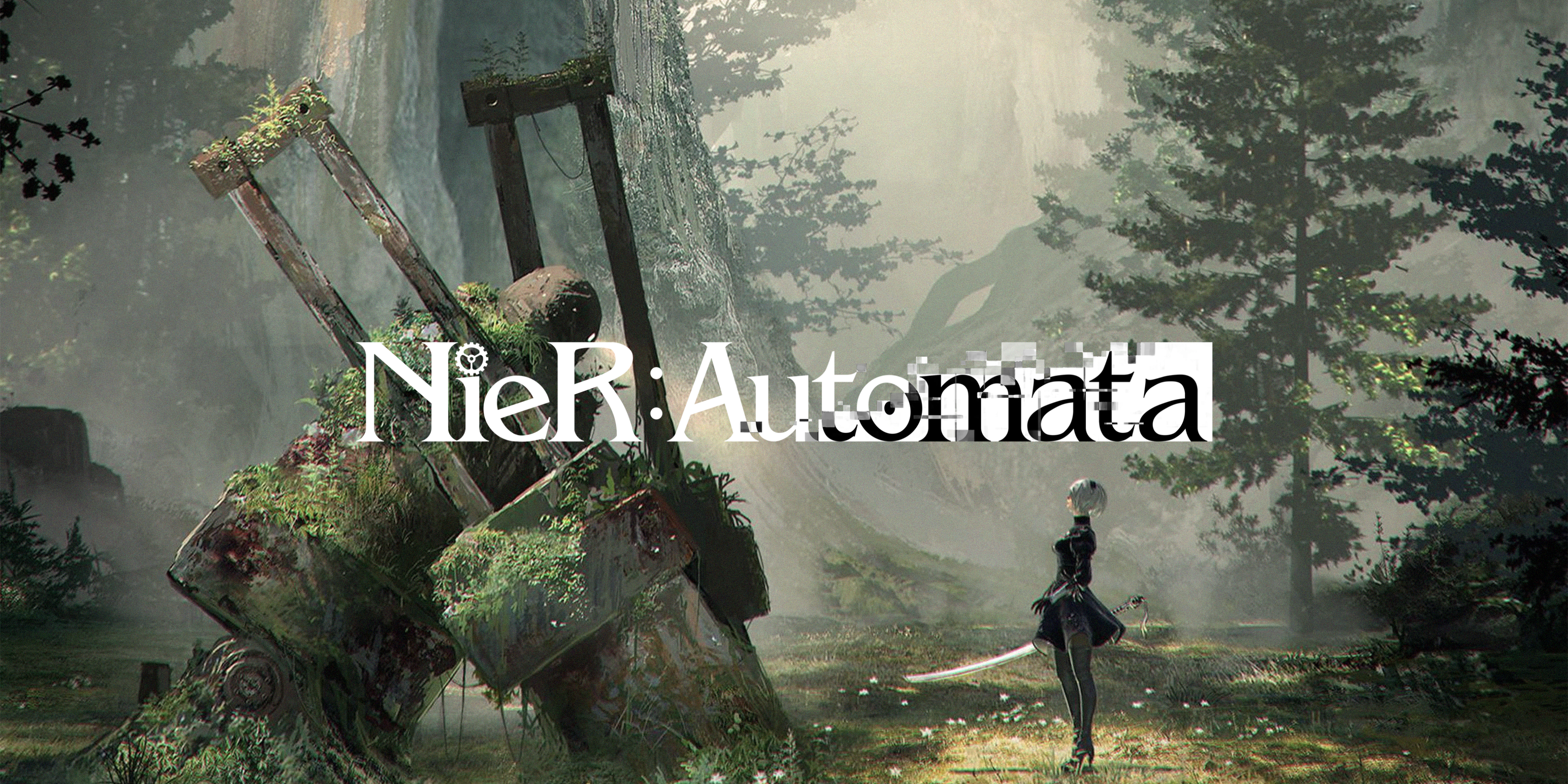#2 — NieR: Automata
NieR: Automata is different. From the moment you start playing, you go through an epic cold open which sees you take on a litany of enemies while continually switching gameplay genres, from a bullet hell, to a third person action-adventure, to a side scroller, to a hack n’ slash, ultimately concluding with a boss fight which sees your character die, only to wake up moments later in some sort of space station. All of this occurs within the first 30 minutes of the game. NieR: Automata is an ambitious, messy, self-aware, and above all courageous title – and executes it all perfectly.
To understand NieR: Automata, you need to understand the game’s creator Yoko Taro, for his eccentricity is mirrored throughout the entire game. Though technically a sequel to 2010’s NieR, Automata’s story is wholly standalone, and its separation between the two games is no more so noticeable than in the gameplay. Developed by PlatinumGames, NieR: Automata’s gameplay has all the flash and pizzazz of its previous projects such as Bayonetta and Metal Gear Rising Revengeance, while balancing RPG elements, and an open world.
Speaking of the world, it’s bleak, oppressive, empty, and yet feels more realised than most. Despite its relatively small size and emptiness, the world of NieR: Automata is so clearly filled with secrets and a history that is ripe for discovering. This all works in tandem with the story, which is initially presented as mostly straightforward, and the game’s first ending can serve as a satisfying story in its own right. That being said, by the time you reach the credits, you’ve only played about 20% of the game.
Without going into spoilers, once the credits have finished rolling, you are given the opportunity to play the game again, but with a different character. While it may appear as a simple new game plus-type scenario, this couldn't be further from the truth. Each ending isn't an ending, but more akin to a chapter, meaning that the game’s ‘true ending’ is the game’s only ending. Again, without delving into spoilers, the way that the story unfolds, from its purely narrative perspective, to its effects on gameplay, to its fourth wall breaking moments, and ultimately to the message the game is trying to tell, NieR: Automata is unlike any game I've ever played before. The mind of Yoko Taro, mixed with the gameplay and developmental skills of PlatinumGames made for a game which in my opinion, is genius.
I have yet to even touch on the game’s soundtrack, which in my opinion, would have pushed NieR: Automata to be on this list, even if every single other element of the game was subpar. As it stands however, the music of Keiichi Okabe, combined with the voice talents of the likes of Emi Evans makes for a soundtrack which will forever be imprinted in the back of my mind. The music can elicit emotions from the listener independently of the game itself. When combined with the game, however, the music takes on an entirely new dimension, both reflecting and mirroring the despair, sadness, desperation, and ultimately, hope that can be found throughout the game’s world and story.
NieR: Automata is daring, NieR: Automata is genius, and NieR: Automata is not only my second favourite game of the generation, but one of my favourite games ever.
 KitGuru KitGuru.net – Tech News | Hardware News | Hardware Reviews | IOS | Mobile | Gaming | Graphics Cards
KitGuru KitGuru.net – Tech News | Hardware News | Hardware Reviews | IOS | Mobile | Gaming | Graphics Cards



